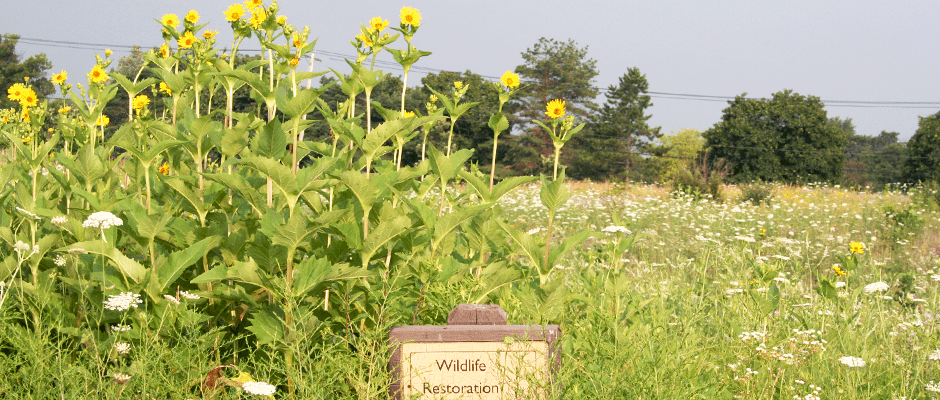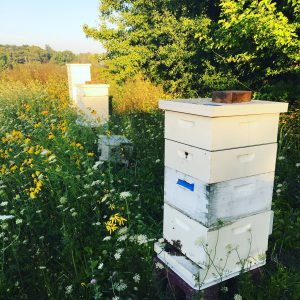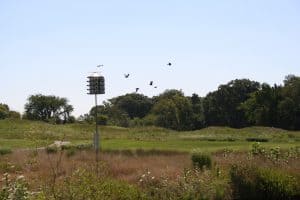Share this article
Golf’s green opportunities: The birds and the bees
Despite the environmental benefits to honey bees and pollinators, diverse ecosystems struggle to gain acceptance on golf courses due to prevailing expectations for sterile, weed-free, mono-stands of turfgrass. As a consequence, many golf course properties are reluctant to change their management practices, and they miss opportunities to provide healthy environments for countless varieties of wildlife. To increase acceptance of varied habitats on golf courses, Cantigny Golf, located in Wheaton, Ill., and The Bee Barometer Project (BBP) are committed to promoting, demonstrating and educating the public about the importance of diverse ecosystems to support healthy environments needed by many types of fauna and flora.
The BBP breaks down barriers of the status quo by urging golf property managers and golfers to think differently and open their minds to the beauty and value of nature in its wild state. Through educating and demonstrating the alluring art of beekeeping, the BBP seeks to encourage people already enthusiastic about golf and its environmental opportunities to move the golf community toward embracing diverse habitats on golf courses and to make them a part of solving one of the most important environmental issues of the day: sustaining pollinator health.
The modern-day golf course finds itself on a challenging frontier, especially as pristine standards – set by golfer expectations – contribute to greater demands for the immaculate golf experience. This Augusta paradigm, or sterility of playing surfaces and landscapes, presents a difficult standard to uphold and a barrier to diverse ecosystems on golf courses. These standards discourage golf courses from using more of their valuable green space to model exceptional land stewardship, build healthier habitat and foster environments conducive to pollinators and all forms of wildlife.
At Cantigny Golf, though healthy habitats are hardwired into our DNA, strategic partnerships have always been key to our success. Eagle Scouts, Boy Scouts and volunteers have assisted us with constructing and maintaining over 50 bluebird boxes, six mallard boxes, six wood duck boxes, two bat boxes and a screech owl box for our nest box-monitoring program. Our birding volunteers, Ray and Cecilia Feld, work diligently to steward our nesting program, as well as manage our thriving Purple Martin colony. A dedicated team of volunteers diligently nurtures our native prairie areas throughout the golf course, and National Honor Society students from The South Elgin High School Chapter have assisted with European Buckthorn removal for our native woodland restoration projects. Most recently, The Bee Barometer Project has benefitted greatly from our partnership with Bayer Bee Care and their Feed a Bee initiative. Twenty pounds of pollinator forage seed mix and hundreds of native prairie plant plugs have been donated to the BBP to help augment our native prairie areas.
This is golf’s environmental opportunity! If you’d like to learn more about The Bee Barometer Project or how golf course green space can benefit pollinators and wildlife, visit www.beehealth.bayer.us/beekeepers or email Scott.Witte@ProBee1.com.
Header Image: ©BayerBeeCare










